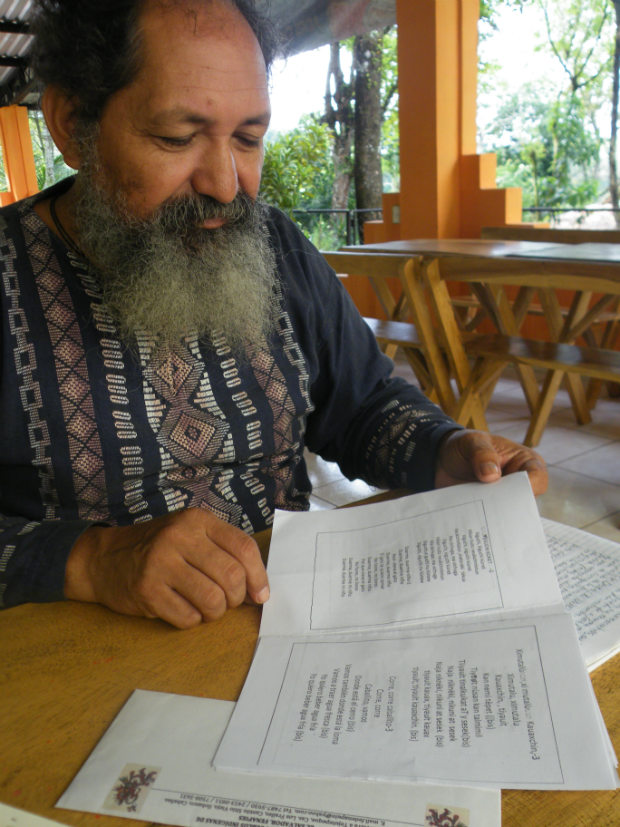Salvadoran Indigenous leader Shandur Kuátzin Makwilkali
BY ROBIN LLEWELLYN • NOV 6, 2012
"This is not Cabañas," said Shandur Kuátzin Makwilkali, gesturing around the room and out the window at the wooded slope, but meaning the entire region of that name. He had been describing the growth of indigenous associations throughout this mainly rural department in northern El Salvador, adding:
"Guakotekti is its true name, not the militarily imposed name of Cabañas. Guakotekti is its good name."
 Shandur is President of the National Federation of Indigenous Peoples of El Salvador, which works to resuscitate the vitality of indigenous cultures in a part of Central America where they have been systematically and brutally suppressed. The challenge is significant:
Shandur is President of the National Federation of Indigenous Peoples of El Salvador, which works to resuscitate the vitality of indigenous cultures in a part of Central America where they have been systematically and brutally suppressed. The challenge is significant:
"We don't have enough unity, solidarity", he laments, before returning to the positive: "But now we have a federation, present in 14 departments, with 10,000 members."
The Federation celebrated its first anniversary on 21 January this year. In addition to its remarkable growth, the indigenous movement has established a small University of the Indigenous Peoples of El Salvador, teaching four courses lasting for three and four years. Students can study courses in indigenous medicine, the Nahuat language, indigenous administration, and biculturalism.
Another development is the Cooperative Association of Savings, Credit, Consumption, Housing and Farming of the Nahuat-Pipil Nation. The Federation, University, and Cooperative make up the three branches of the movement that seek to mobilize, educate, and overcome the economic poverty of the indigenous communities.
According to Shandur an unequal distribution of land ownership limits how much can be accomplished in raising living standards, and the Government has been unwilling to engage in negotiations on the question of returning indigenous land.
"Our philosophy as indigenous peoples is to have our land, as she is our mother", Shandur says. "We need to have our land, to have our fruit, rather than money."

